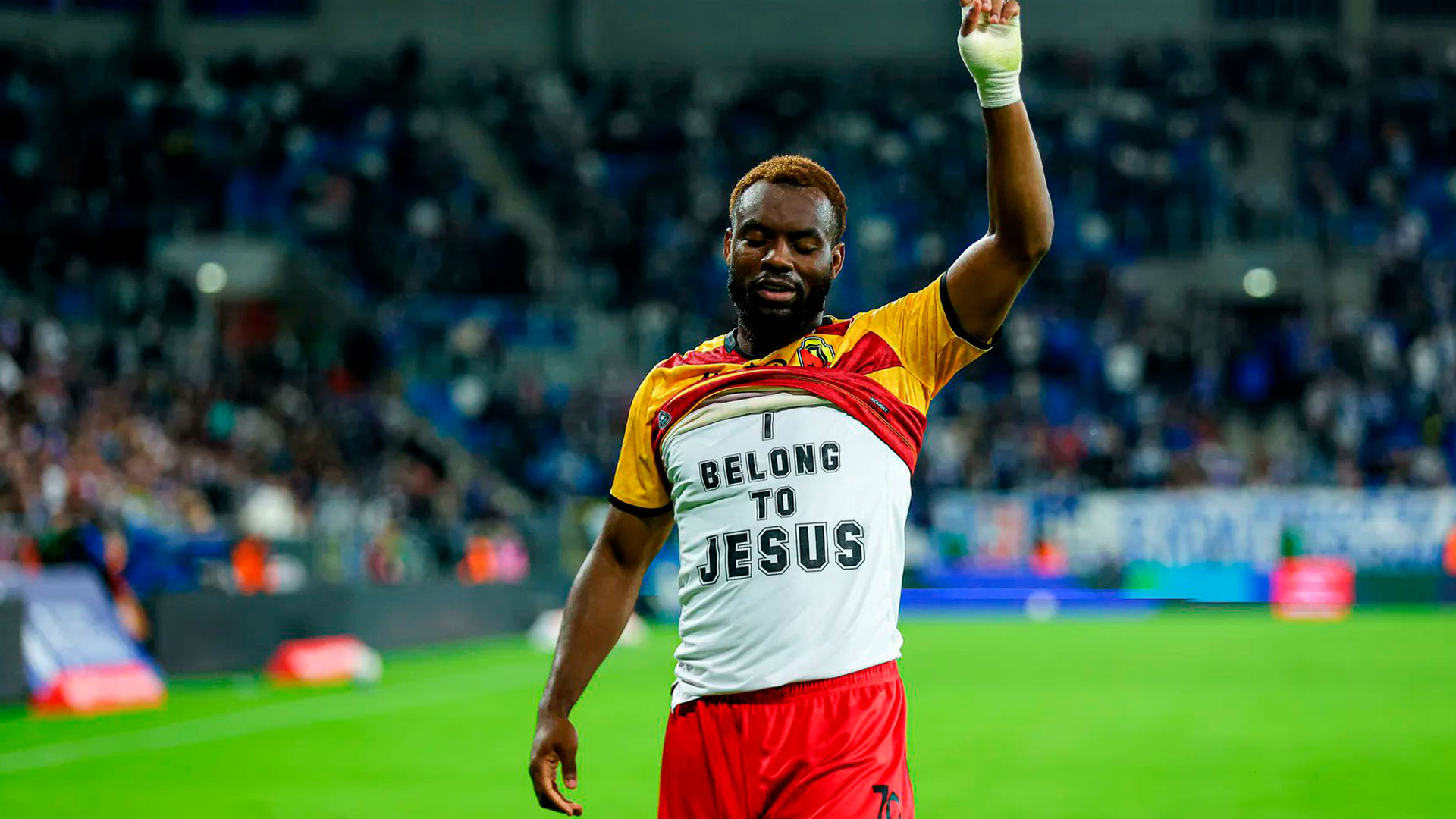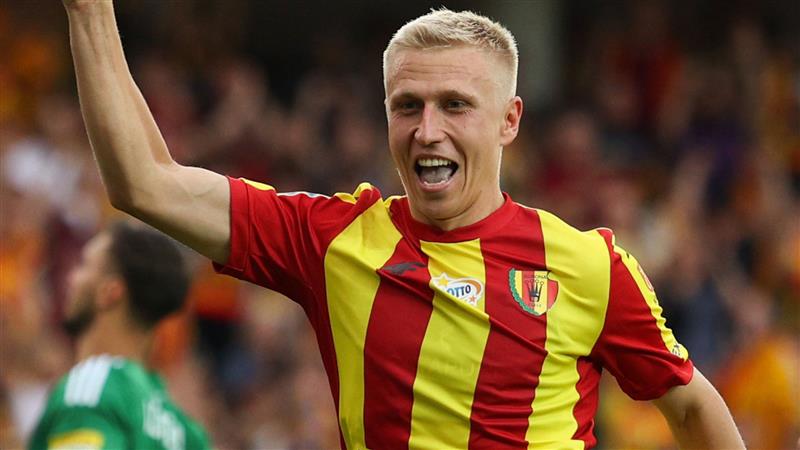- Home >
- Soccer >
- PKO BP Ekstraklasa >
- Marek Jóźwiak Gives Exclusive Interview on Legia Warsaw, Górnik Zabrze, and the State of the Ekstraklasa
Marek Jóźwiak Gives Exclusive Interview on Legia Warsaw, Górnik Zabrze, and the State of the Ekstraklasa
A Polish legend speaks out: in an exclusive chat with Daniel Sobis, Marek Jóźwiak shares his views on Legia Warsaw and the Ekstraklasa.
Marek Jóźwiak Speaks Ahead of Górnik–Legia
Few players embody the history of Legia Warsaw quite like Marek Jóźwiak. With more than 350 appearances for the club, three Polish Championships, and four Polish Cups, Jóźwiak remains a true legend of the capital side. Ahead of one of the most iconic fixtures in Polish football – Górnik Zabrze vs. Legia Warsaw, live this Sunday on beIN Sports USA – he sat down with journalist Daniel Sobis to discuss the current state of Legia, the impact of new signings, and the broader development of the Ekstraklasa.
Here is the full conversation:
1. Górnik Zabrze are surprisingly leading the table, while Legia sit in sixth place, though with one game in hand. How do you see Sunday’s clash shaping up?
These matches always electrify the whole of Poland, just like games against Lech Poznań. They have always been full of emotions, goals, and chances. Of course, Górnik are currently top of the league, but let’s stay calm – it’s still the beginning of the season, and Legia are slowly starting to wake up. I believe Legia have more to lose in this match than Górnik. The obligation to take three points lies with Legia, even though Górnik are top of the league.
2. What impression does Legia’s style under coach Jordanescu make on you? Do you see positive changes?
I think Legia haven’t found full stability yet this season – they mix very good matches with weaker or average ones. What is important, though, is that Legia have recently stopped conceding goals. That’s a positive aspect. Once the players who joined late in the transfer window reach form, things should improve. I mean especially Kacper Urbański, who is slowly regaining his spark, and that will give Legia more creativity up front. That’s what they need to create chances for Rajović, who for me is currently the club’s only real striker. Čolak is far away from being ready. In good shape, in my opinion, are Kamil Piątkowski and Damian Szymański – both are strong additions. Unfortunately, Piątkowski came off injured in the last game, so I don’t know if he will recover in time for Górnik.
3. The club spent a significant fee on Mileta Rajović. How do you assess his impact so far?
To be honest, I’m not impressed yet. His technical weaknesses bother me. At this level, for that price, a striker should be much better in ball control, first touch, and holding possession. He was supposed to excel in these areas, but I see many flaws. I don’t think all the scouting information we received was fully accurate. Still, I see that he’s trying hard, he feels better with every match, and he’s still adapting – to the club, the team, and the Polish league. But I expect him to be a key forward for Legia. If he gets two or three chances per game, he must convert at least one. For now, he’s been average.

4. Who do you see as the leader of this Legia side – both on the pitch and in the dressing room? Do you see players who can take responsibility at crucial moments?
Damian Szymański is that kind of player – he has the character to take responsibility during games. Kamil Piątkowski is another profile like that. Bartek Kapustka can also step up in difficult moments. But overall, it takes commitment from the whole team. One player can give the impulse, but others must follow. Responsibility must be shared – in big matches, it’s not individuals who win, but the team as a whole.
5. Kacper Urbański has returned to Poland. What impact can he make? Was this move more of a risk for the player or for the club?
I think the risk is on both sides, but more for Kacper. Legia signed a young, talented Polish international with top-level experience – so the club’s risk was minimal, especially for the transfer fee of €700k, as confirmed by sporting director Michał Żewłakow. That’s almost a bargain. If Kacper gets back to the level he showed months ago, Legia have secured a perfect addition for their attack.
6. Do you think Górnik have a real chance of fighting for the championship this season?
Coach Gasparík has brought something very important – joy of playing football. The team feels great together, they’ve built a strong bond. With the unique atmosphere in Zabrze, they play freely, and everything works for them. He has some interesting players: Hellebrand in midfield, Liseth – who many laughed at last season – is now effective and valuable. Rafał Janicki is a leader, though often injured or suspended. Erik Janža is the engine of this team. Gasparík adapts well to opponents and has them tactically disciplined.
7. It’s still early, but what are your pluses and minuses in the Ekstraklasa so far?
I’m disappointed with Raków – their play and results are below expectations. Among the newcomers, Arka Gdynia had a tough start, but there’s no light at the end of the tunnel – it looks like things will only get worse. On the positive side, Cracovia have surprised me with really attractive football, and of course Górnik Zabrze, who usually sat in mid-table but now aim higher. I think both clubs are targeting European competitions. Fighting for the title will be very hard, but qualifying for the Conference League would already be a big success – financially and in terms of prestige.
8. Finally, how do you see the development of the Ekstraklasa overall, with better players coming in and international TV rights, including beIN Sports in the USA and Canada?
In terms of attendances, match organization, and TV coverage, the league is already among Europe’s best – not far behind England, France, or Spain. But Poland needs to take the next step: invest revenues wisely, especially in youth development. Clubs must focus not only on signing players, but also on nurturing their own talent. And I would love to see Polish clubs not just in the Conference League, but at least one or two regularly in the Europa League or even the Champions League. That would prove real sporting progress. If clubs from Kazakhstan can play in the Champions League, why not from Poland? That would attract even more sponsors and better players.





















